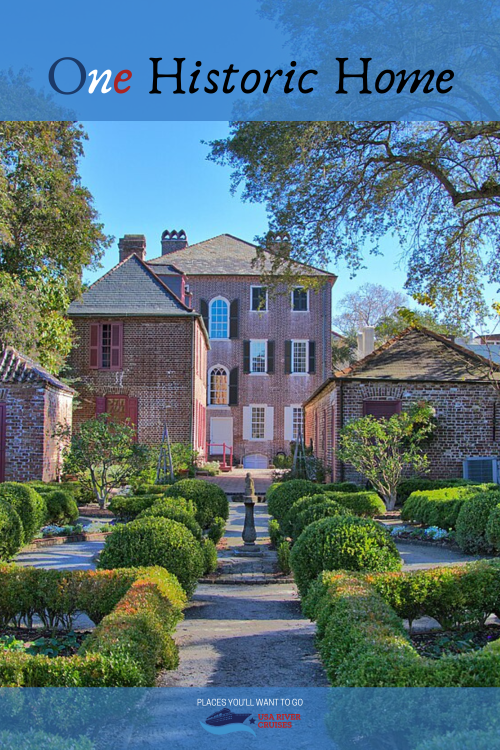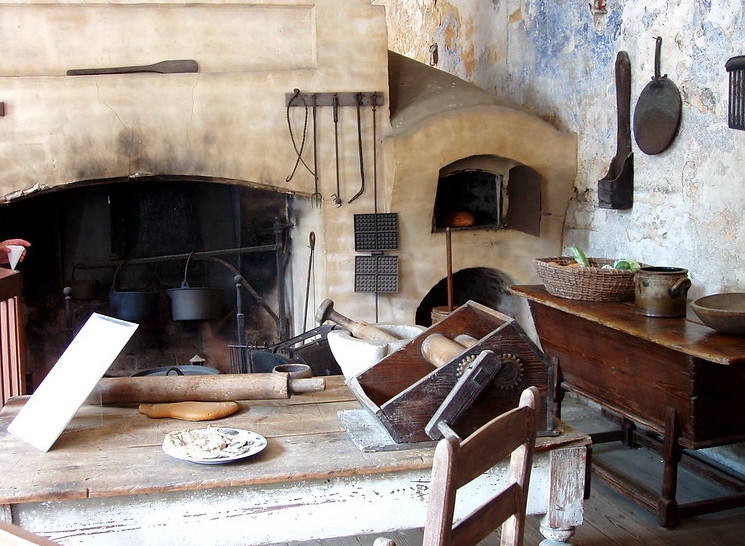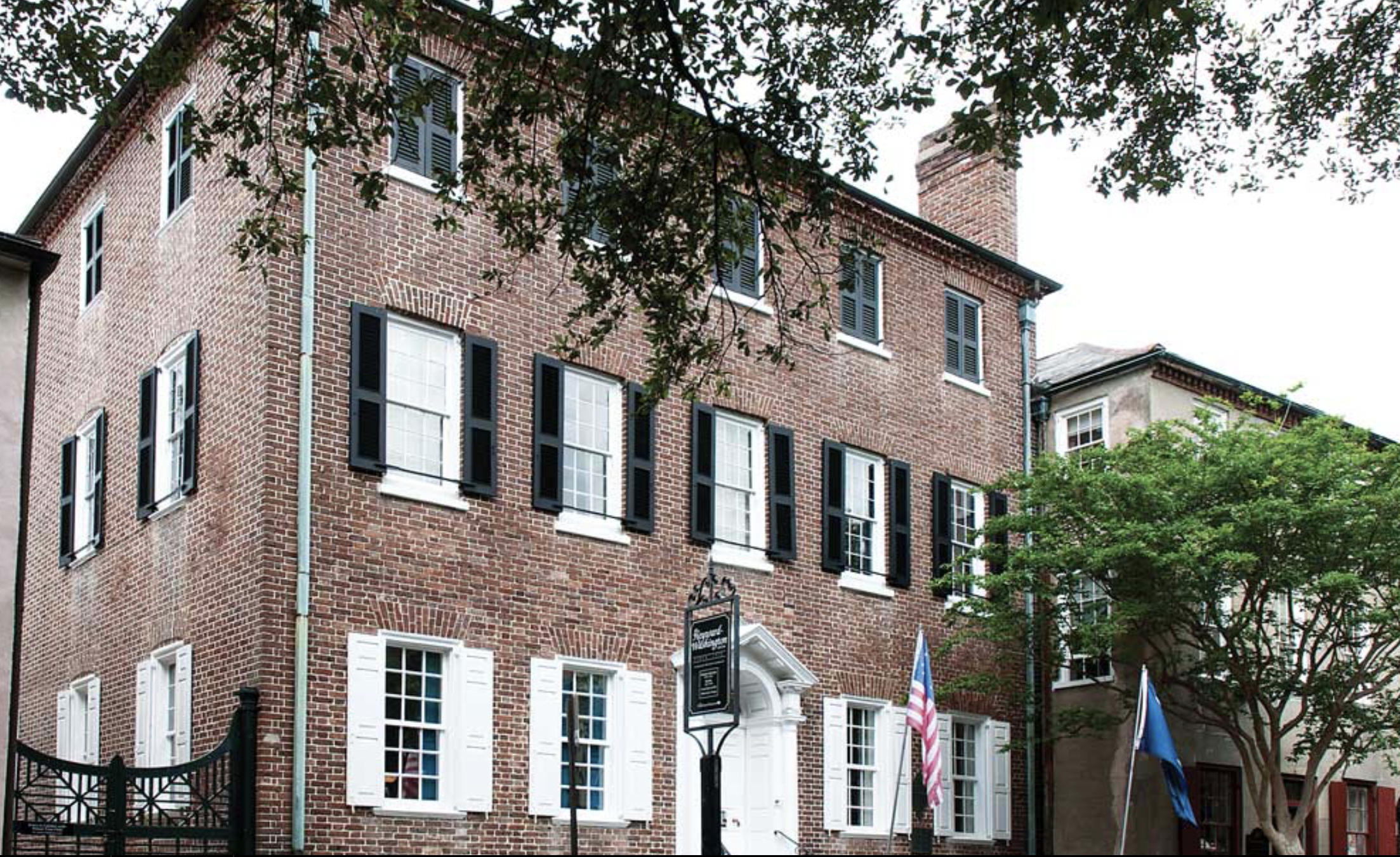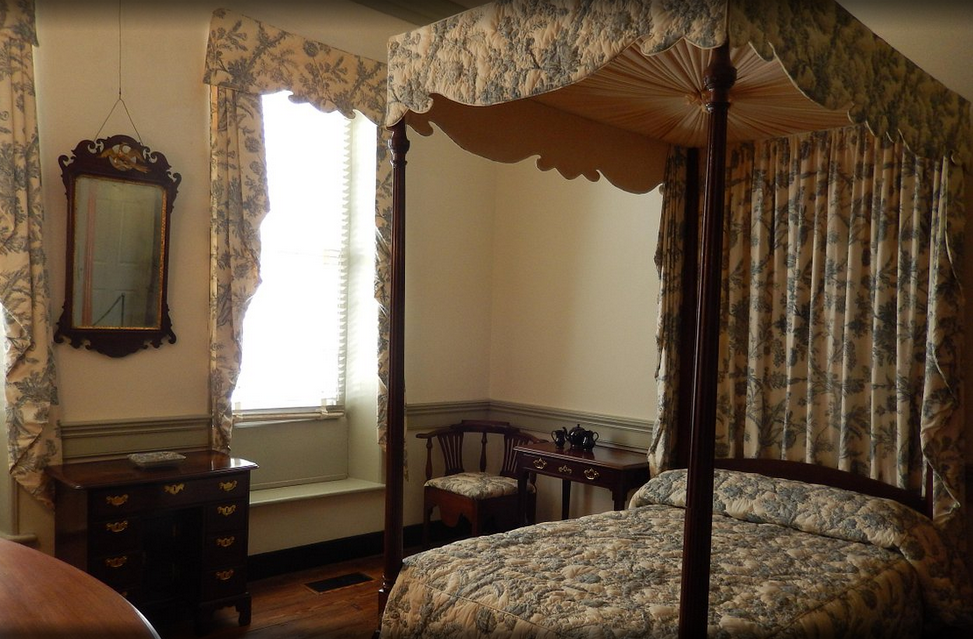One Historic Home
The Heyward-Washington House
Charleston, South Carolina
By Dawn Woolcott
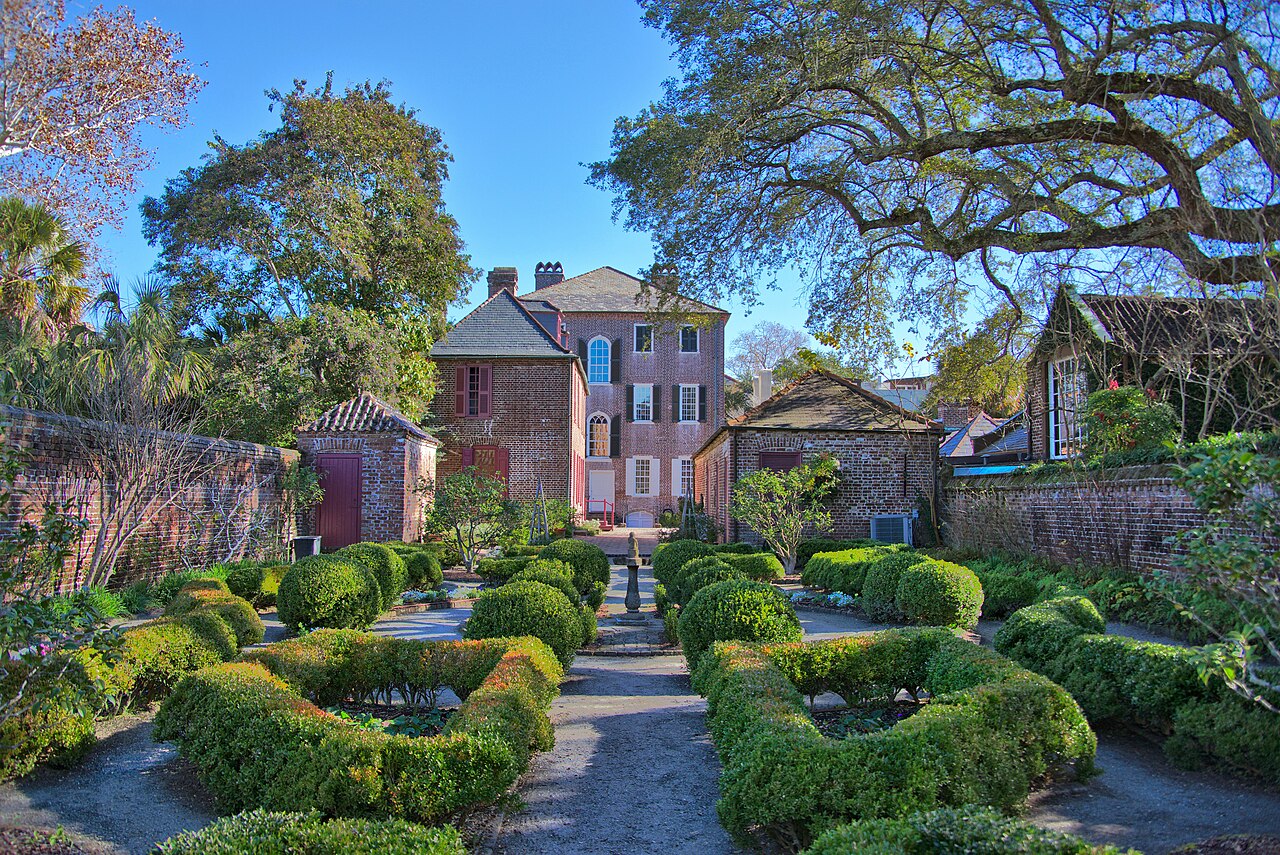
If you could walk in the footsteps of George Washington – stand by the same fireplace, walk through the same doorways, and look out the same windows, would you? Could you imagine the weight of responsibility in those shoes? The newly elected president of the newly formed United States of America rented and stayed in the Heyward house for a week-long stay while in Charleston. The owner of the house, Thomas Heyward, Jr. had a trying time of his own during the Revolutionary War. He was a patriot who had led the local militia, in 1790 he was captured when Charleston was captured by the British, and imprisoned. He was released in a prisoner swap while in St. Augustine later the following year, and almost drowned while being brought home. Heyward was a politically active lawyer who became one of four signers of the Declaration of Independence from South Carolina at just 30 years old. He resumed his work as a judge once the war was over.
The Home
The Georgian era brick home is not grand and magnificent, a reflection of the upbringing he received growing up in South Carolina. He was raised to believe in the importance of cultivating the mind, not showcasing grand interiors. His relatively modest red brick home was built in 1772 and changed little over the years, despite being billeted to house Union soldiers during the Civil War and briefly being used as a boarding house. It was purchased by the Charleston Museum in 1929, allowing it to avoid the many decades of bad remodeling and conversions to other uses that is the fate of many other old homes during the 20th century. It became Charleston’s first historic home museum and was preserved to remain in the time period George Washington would have seen it.
The Garden
The gardens have been kept in period style, containing flowers, vegetables, and shrubs that would be familiar to the family if they walked its paths today. The gardens had to be recreated, and date to the 1930s once the Charleston Museum took possession. The Garden Club of Charleston maintains the garden, and has done so since 1941. In the gardens, guests might find the colorful blooms of a camellia, yellow begonias, roses, or herbs. A formal knot garden contains tea olive, boxwood, and native azaleas.
The Kitchen
The kitchen can be especially fascinating, as has been kept as you might find it in the 1740s. You might ask, why the 1740s if the house was built in 1772? The house was built on a site of a former building, and the kitchen and carriage house were kept, while the new family house was built nearby. It was common to have a kitchen separate from the main house to prevent the chance of fires. As the kitchen was not used by family members, but by slaves, the old kitchen was retained. The displays are kept as if the cooks just stepped out for a break – with ashes darkening the fireplace, and dough being rolled out on the table. With all of today’s modern devices, it does make you appreciate the hard work that was involved in just wanting a little toast for your breakfast!
The Furnishings
Charleston has a long history of being master woodworkers, creating outstanding wood furniture. The Heyward-Washington house is home to the Holmes-Edwards Library Bookcase, considered one of the finest examples of American-made colonial furniture. Throughout the house you find excellent examples of wood craftsmanship appropriate to the time period. Furnishings are comfortable but not lavish. Pale blue-green painted woodwork can be found set off against the muted tangerine painted walls in the dining room. The colonial era homes were not afraid of color!
You may enter the house and admire its furnishings, applaud his good deeds as a Revolutionary patriot, and be amazed by the prominent friends he hosted at his house, or you can look a little deeper at the man and his house and see a more complete and complicated picture of life during those times. You do not generally earn enough money as a judge to furnish a house with such quality. Thomas Heyward, Jr. owned a plantation. The separate building containing the kitchen was not where you would find Mrs. Heyward baking bread. It was staffed by slaves. While the Heyward family lost a lot during the war – many of his slaves were either taken or escaped – most likely confiscated and shipped off to serve the rest of their lives on a British Jamaican sugar plantation. The British had not yet banned slavery at the time of the war. Approximately 130 slaves were “recovered” and returned following the war. Visiting a historic home such as the Heyward-Washington house is an excellent time to step into the past and get a glimpse at life in Colonial America. Visit historic homes, abandoned plantations, slave quarters, Mount Vernon and Monticello, and Colonial Williamsburg. You can learn from every stop – from the elite homes to the lowly kitchens. Balance that with the knowledge of what George Washington had been fighting for – the battle against tyranny and the right to self determination, and yet owned slaves himself. It was a complicated world full of double standards, and today’s travelers have an advantage of the passage of time to look at the past more clearly. Travel is the great educator.
Walk in the footsteps of George Washington. Imagine sitting at that dining room table and having a conversation with him on subjects relevant to today’s America. Wouldn’t it be fascinating?
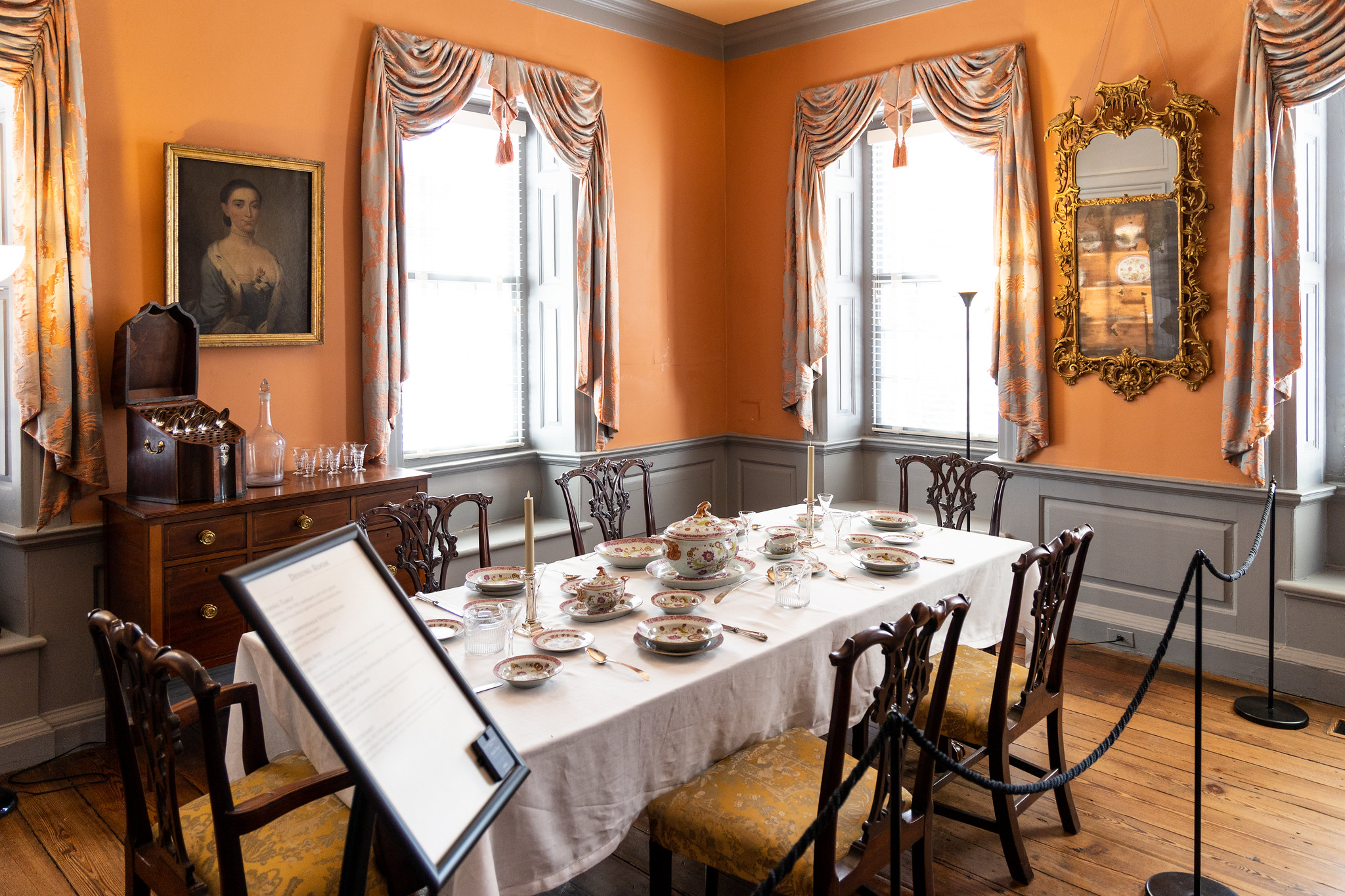
You can visit Charleston and see the historic homes there on one of these small ship cruises, or call for more options:
Canada & the Atlantic Coastline
Toronto, ON to Ft. Lauderdale, FL
- 15 Nights
- October 8, 2024
- From $9,495
- Viking Octantis
- Save up to $1000 off Per Person on Select Staterooms/Departures!
Historic South & Golden Isles-American Star
Charleston to Jacksonville
- 7 Nights
- Please call for information on future dates.
- From $4,425
- American Star
East Coast Inland Passage-American Independence
Jacksonville to Baltimore
- 14 Nights
- November 6, 2024
- From $8,515
- American Independence
Previous Blogs You May Enjoy
Save this story to Pinterest for future reference:
